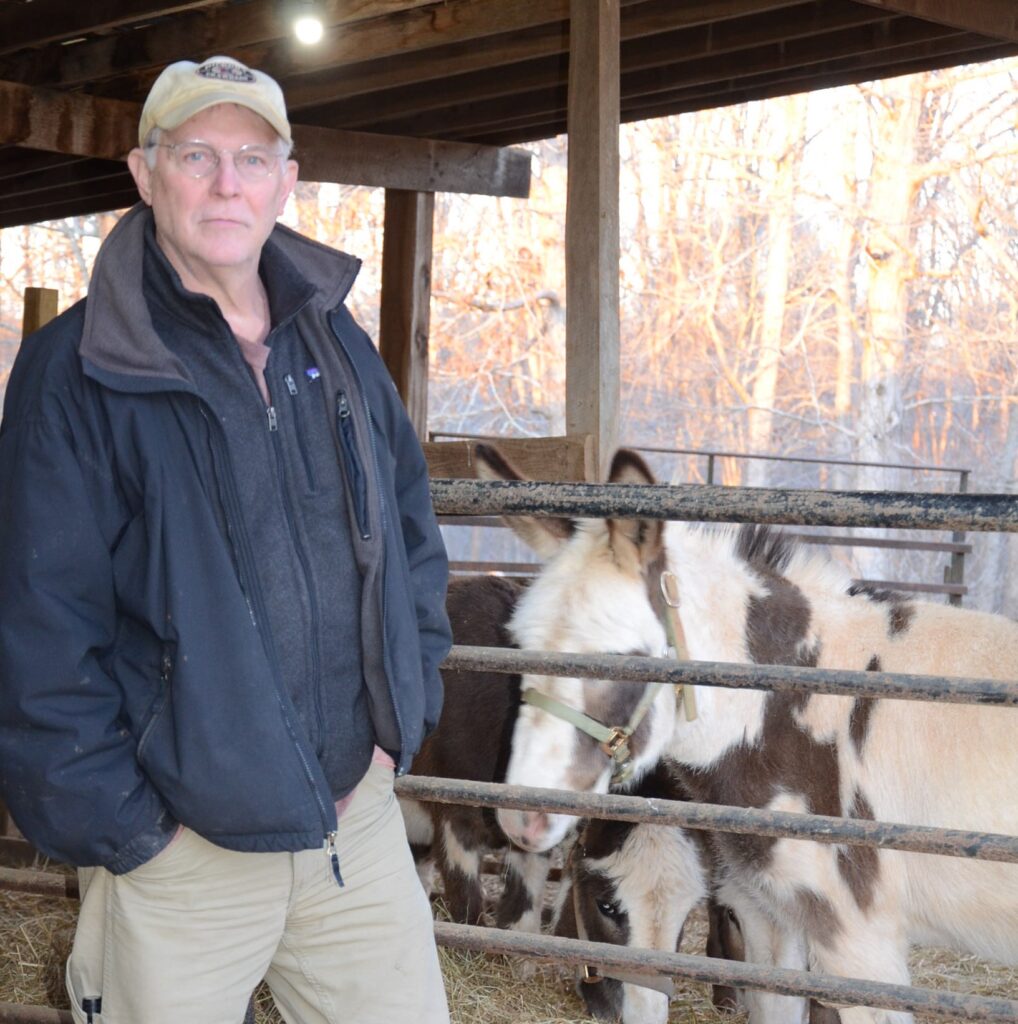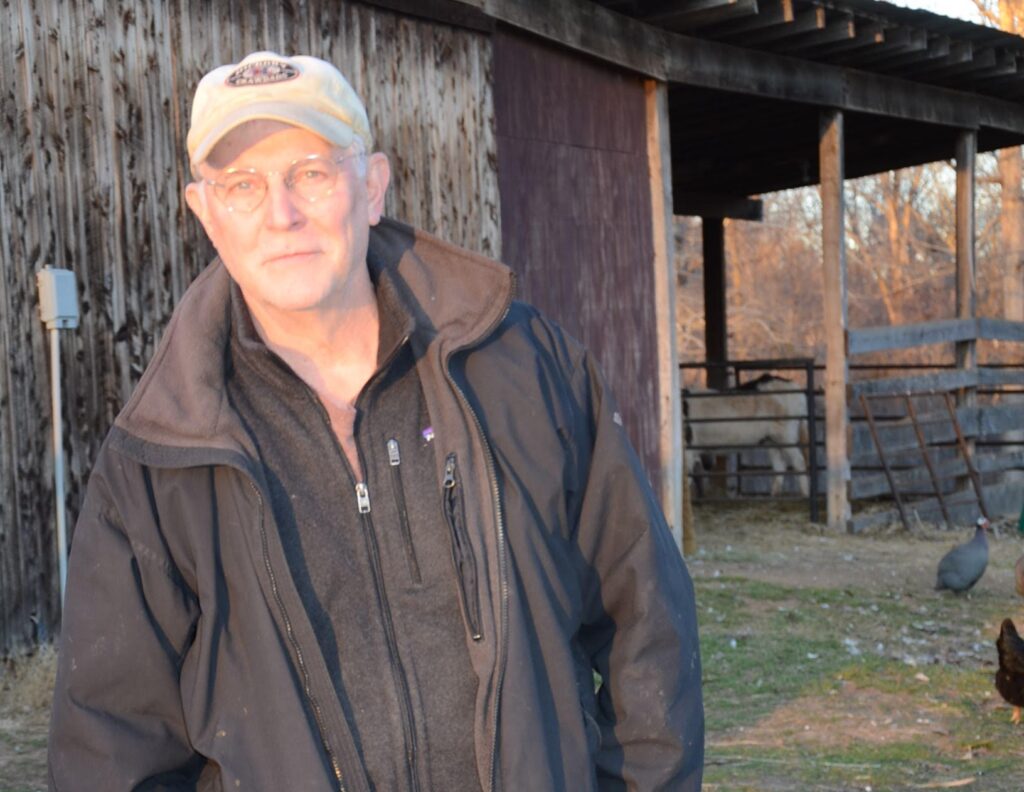The spread of misinformation about utility scale solar projects has been a growing challenge to the clean energy transition. Columbia University finished a study last year of clean energy pushback and found that disinformation is widespread. CCEBA sat down with Tom Terrell, Partner at Fox Rothschild, to talk about fact vs. fiction on solar land use.
Tom is an expert in land use and zoning matters. He has worked in this field for more than 39 years and handled 250+ solar farm rezonings in four states. In addition, Tom is the financial manager of his family’s 752-acre cattle farm.

Question: What are some of the most frequent misconceptions about land used for solar farms?
The most common misconception conflates rural land with true agricultural land. That difference leads to inaccurate claims and poor policy about the “loss of farmland.” I would estimate that about half of the landowners I interact with are large timber companies or large-acreage row-croppers who are wisely looking to diversify their income for protections against droughts, unforgiving market fluctuations, hurricanes and flooding, and the increasingly high cost of equipment, labor, fuel, and other goods. The best way for governments to support farming is to allow this diversification, not fight it.
The other half of landowners are folks whose parents or grandparents farmed the land. The kids left the farm and moved elsewhere to support and raise their families. The fields and woods are still there and the farms might have some horses or cows to satisfy minimal requirements for a tax exemption, but converting their land to solar removes precisely zero acres from true agricultural production.
Another common misperception is that farming is an equally viable option to leasing solar. In the hilly Piedmont counties, making a living in agriculture is next to impossible. That’s why the once ever-present dairy farms near us have all disappeared—it’s easier to lose money in dairy production than to make it. The small tobacco farms I knew as a child are gone. We have four, multi-hundred-acre “farms” next to our land in Randolph County (three of them former dairy operations), and the last one that was truly farmed is now planted with pine trees. If there was a sewer option where we live, the land value for “growing” houses would be 10 to 15 times higher than the land value for growing hay or raising cows.
Question: Why do some policymakers consider all rural land as “agricultural”?
I can only speculate that some elected officials from rural counties find it a convenient political stump. And most of the urban policy wonks are unfamiliar with the nuances of farming.
Another explanation could be that county and local governments use the easiest and most inflated data available, which is the acreage subject to county agricultural or timberland tax exemptions. This data is misleading because every person with a couple of horses or cows—large pets on large tracts—is allowed to claim the exemption. But I wouldn’t call that a bona fide farm.
Question: What should county planners be looking for in a solar project?
Solar farms are among the least impactful of land uses, yet we over-regulate them without any logical basis. They generate practically zero vehicle trips, you can’t hear them, and if there are decent vegetative buffers you can’t see them. If I were a benevolent dictator of the zoning world I’d allow them by right in all districts, subject to two rows of native evergreens as visual buffers.
“It galls me that a politician thinks they know better than a farmer how we should use our land.“

Question: What should county commissioners be looking for in solar or other renewables projects? Where does their role begin, and where does it end?
Commissioners should stop looking at solar developers as tie-dyed T-shirt-wearing folks and instead see them as folks who provide landowners with an extremely good land use option. Unfortunately, too many county commissioners ignore private property rights and make decisions on solar farms based on whether neighbors are mad, or struggle because they cannot separate a local land use decision from political ideology. One has nothing to do with the other. We know that solar farms are safe and do not harm property values, yet commissioners give credence to contrary claims because people shout them loud enough. The real issue is that people are averse to change.
Question: How does your own farming experience influence your views towards land used for solar.
More people need to take advantage of multi-use land ownership—farmers and non-farmers alike. On our farm, we do rotational grazing on high-quality fescue for about 250 head of Red Angus, and only buy hay for four winter months. We don’t owe one cent on our land or equipment, and we get free labor for repair work and cattle operations from the hunters that we allow to hunt our land. Even with these low costs and in a cattle seller’s market we still can’t seem to go from red ink to black. Though I don’t have the option of solar on my acreage—nearby transmission lines don’t allow for interconnection—I have seen the value of deploying solar and other alternative revenue streams in conjunction with farmland. It galls me that a politician thinks they know better than a farmer how we should use our land. If people really want to support agricultural communities, why not give us the option to diversify and make money instead of losing it, and for a fraction of the labor? Why oppose the opportunity to convert to solar?

Excellent points delivered with sincere passion
Would not expect anything less from Mr Terrell
Solar still requires a massive amount more land to replace the current fossil fuel power generator. Solar needs to cover existing parking lots, large warehouses, building etc. to avoid covering green space. It would be more expensive but would also reduce the heat island effect.
His description of rural/agricultural land is right on. So much of the land in NC has been under utilized. If solar farms were always “subject to two rows of native evergreens as visual buffers” and permitting were by objective impervious surface, materials, soil and erosion control plans, then our great State would benefit tremendously. Try discussing these facts with your legislators if you remotely care about global warming:)